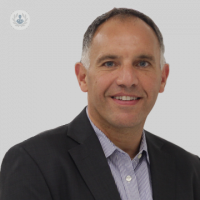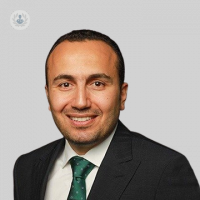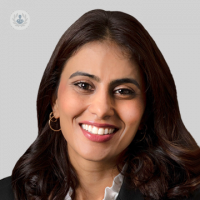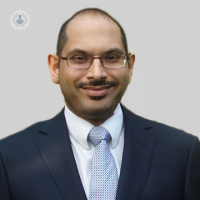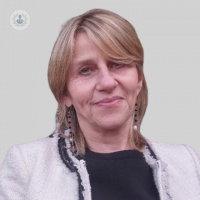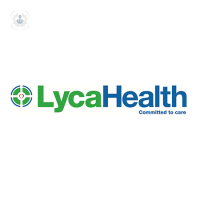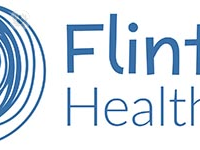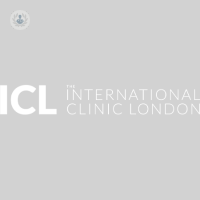What is obsessive-compulsive disorder (OCD)?
Obsessive-compulsive disorder, commonly known as OCD, is a form of anxiety disorder, characterised by obsessions and compulsions. Obsessions can be defined as being reoccurring and uncontrollable thoughts, whilst compulsions can be defined as behaviours that the patient feels compelled to do. Compulsions are usually performed to deal with the anxiety caused by the obsession. OCD may worsen during times of stress, but can seem a lot more manageable at other times. Obsessions and compulsions in OCD have a huge impact on the individual’s life, causing disruption, severed relationships, isolation and they can even impact physical health.
Whilst obsessions dominate their thoughts, obsessions do not reflect their personality as people with OCD do not usually act out their thoughts because they usually find them so distressing.

What are the symptoms of obsessive-compulsive disorder?
The symptoms are classified as obsessions and compulsions.
Obsessions:
- Fear of contamination and germs
- Having aggressive thoughts towards yourself or others
- Fear of causing others harm
- Need for symmetry (fearing that something bad will happen if everything is asymmetrical)
- Intrusive thoughts and images (e.g. violent, sexual, religious or blasphemous)
Compulsions:
- Rituals (e.g. washing continuously, arranging objects in a specific way or touching things in a particular order or at a certain time)
- Correcting thoughts (e.g. counting to a certain number or repeating a word or phrase aloud or in your head)
- Checking (e.g. doors are locked and lights are switched off)
- Reassurance (constantly asking others to tell you that everything is alright)
What causes obsessive-compulsive disorder?
The exact cause of OCD is unknown, however, there are certain factors that can influence it such as brain structure and functioning (i.e. having dysfunctional beliefs), genetics, family history and environment. Although we are not fully sure about the causes of OCD, treatment can still be successful.
Can obsessive-compulsive disorder be prevented?
It is not possible to prevent obsessive-compulsive disorder, however, early diagnosis reduces the time a person suffers from this disorder.
What is the treatment for obsessive-compulsive disorder?
The treatment for obsessive-compulsive disorder is a combination of pharmacological treatments and cognitive behavioural therapy (CBT). The pharmacological treatments used include antidepressants, tranquilisers and sometimes beta-blockers to manage physical symptoms caused by anxiety. It has been shown that with ongoing treatment, which usually combines medication and CBT, long-term relief from symptoms can be attained.
11-13-2012 12-05-2023Obsessive compulsive disorder (OCD)
What is obsessive-compulsive disorder (OCD)?
Obsessive-compulsive disorder, commonly known as OCD, is a form of anxiety disorder, characterised by obsessions and compulsions. Obsessions can be defined as being reoccurring and uncontrollable thoughts, whilst compulsions can be defined as behaviours that the patient feels compelled to do. Compulsions are usually performed to deal with the anxiety caused by the obsession. OCD may worsen during times of stress, but can seem a lot more manageable at other times. Obsessions and compulsions in OCD have a huge impact on the individual’s life, causing disruption, severed relationships, isolation and they can even impact physical health.
Whilst obsessions dominate their thoughts, obsessions do not reflect their personality as people with OCD do not usually act out their thoughts because they usually find them so distressing.

What are the symptoms of obsessive-compulsive disorder?
The symptoms are classified as obsessions and compulsions.
Obsessions:
- Fear of contamination and germs
- Having aggressive thoughts towards yourself or others
- Fear of causing others harm
- Need for symmetry (fearing that something bad will happen if everything is asymmetrical)
- Intrusive thoughts and images (e.g. violent, sexual, religious or blasphemous)
Compulsions:
- Rituals (e.g. washing continuously, arranging objects in a specific way or touching things in a particular order or at a certain time)
- Correcting thoughts (e.g. counting to a certain number or repeating a word or phrase aloud or in your head)
- Checking (e.g. doors are locked and lights are switched off)
- Reassurance (constantly asking others to tell you that everything is alright)
What causes obsessive-compulsive disorder?
The exact cause of OCD is unknown, however, there are certain factors that can influence it such as brain structure and functioning (i.e. having dysfunctional beliefs), genetics, family history and environment. Although we are not fully sure about the causes of OCD, treatment can still be successful.
Can obsessive-compulsive disorder be prevented?
It is not possible to prevent obsessive-compulsive disorder, however, early diagnosis reduces the time a person suffers from this disorder.
What is the treatment for obsessive-compulsive disorder?
The treatment for obsessive-compulsive disorder is a combination of pharmacological treatments and cognitive behavioural therapy (CBT). The pharmacological treatments used include antidepressants, tranquilisers and sometimes beta-blockers to manage physical symptoms caused by anxiety. It has been shown that with ongoing treatment, which usually combines medication and CBT, long-term relief from symptoms can be attained.
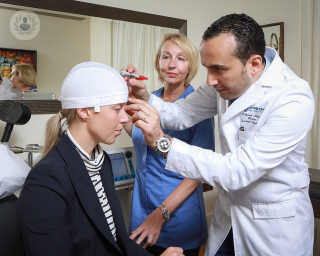

Transcranial magnetic stimulation (TMS): what happens during a typical session?
By Dr Mohamed Abdelghani
2024-11-21
Transcranial magnetic stimulation (TMS) is a safe and non-invasive procedure that can help treat depression and other forms of mental illness through the use of repetitive magnetic pulses. But how are these pulses actually delivered and what would happen during a typical session? Dr Mohamed Abdelghani, one of our top consultant psychiatrists based in London explains. See more


Transcranial magnetic stimulation (TMS) in treating OCD
By Dr Aleks George Srbinoski
2024-11-21
In his latest online article, Dr Aleks George Srbinoski gives us an insight into transcranial magnetic stimulation (TMS). He explains the NICE guidelines for treating OCD, the evidence of treatment of OCD with TMS and if improvement in OCD with TMS is likely to be sustained. See more


Obsessive compulsive disorder: what you need to know
By Dr Magdalena Czerwińska
2024-11-20
Obsessive compulsive disorder (OCD) is a mental health issue that impacts millions globally. It's often misunderstood, but with the right information and support, individuals can learn to manage their symptoms and lead fulfilling lives. Leading consultant psychiatrist Dr Magdalena Czerwińska explains the core elements of OCD, including its symptoms, causes, and available treatments to empower those affected to seek help and support. See more


Psychiatric treatment of compulsive/hyperactive thinking
By Dr Mohan Rathnaiah
2024-11-12
Compulsive or hyperactive thinking is often characterised by repetitive, uncontrollable thoughts that can overwhelm a person's mental space. These thought patterns are commonly associated with conditions such as obsessive-compulsive disorder (OCD), anxiety disorders, and attention-deficit hyperactivity disorder (ADHD). Psychiatric treatment aims to address the underlying causes of these thought patterns and help patients regain control over their mental state. See more
Experts in Obsessive compulsive disorder (OCD)
-
Dr Mohamed Abdelghani
PsychiatryExpert in:
- Transcranial magnetic stimulation (TMS)
- Adult ADHD
- Bipolar disorder
- Obsessive compulsive disorder (OCD)
- Depression
- Anxiety
-
Dr Bijal Chheda-Varma
PsychologyExpert in:
- Mental health assessment
- Autism
- ADHD
- Anxiety
- Obsessive compulsive disorder (OCD)
- Eating disorders
-
Dr Vimal Sivasanker
PsychiatryExpert in:
- Depression
- Anxiety
- Panic attacks
- Bipolar disorder
- Obsessive compulsive disorder (OCD)
- Psychotic disorders
-
Dr Victor Thompson
PsychologyExpert in:
- Cognitive behavioural therapies
- Depression
- Anxiety
- Panic
- Obsessive compulsive disorder (OCD)
- Phobias
-
Dr Nikki Scheiner
PsychologyExpert in:
- Functional neurological disorder
- Post-traumatic stress disorder (PTSD)
- Depression
- Anxiety
- Obsessive compulsive disorder (OCD)
- Relationship counselling
- See all

LycaHealth Canary Wharf
LycaHealth Canary Wharf
1 Westferry Circus, Canary Wharf. E14 4HD
No existe teléfono en el centro.
By using the telephone number provided by TOP DOCTORS, you automatically agree to let us use your phone number for statistical and commercial purposes. For further information, read our Privacy Policy
Top Doctors

Flint Healthcare
Flint Healthcare
8, Hunns Mere Way, Woodingdean Office Campus, Brighton
No existe teléfono en el centro.
By using the telephone number provided by TOP DOCTORS, you automatically agree to let us use your phone number for statistical and commercial purposes. For further information, read our Privacy Policy
Top Doctors

The International Clinic London
The International Clinic London
10 Harley Street
No existe teléfono en el centro.
By using the telephone number provided by TOP DOCTORS, you automatically agree to let us use your phone number for statistical and commercial purposes. For further information, read our Privacy Policy
Top Doctors
-
LycaHealth Canary Wharf
1 Westferry Circus, Canary Wharf. E14 4HD, Central LondonExpert in:
- Cardiology
- Dermatology
- Diagnostic Imaging
- Women’s health
-
Flint Healthcare
8, Hunns Mere Way, Woodingdean Office Campus, Brighton , BrightonExpert in:
- Depression
- Psychosis
- Psychiatry
- ADHD
- Bipolar disorder
- Post-traumatic stress disorder (PTSD)
-
The International Clinic London
10 Harley Street, W1G Marylebone LondonExpert in:
- Addictions
- Anxiety
- Panic attacks
- Depression
- Fertility
- Child Psychology
- Most viewed diseases, medical tests, and treatments
- School refusal
- Migraine
- Maternal mental health
- Pelvic pain syndrome
- Seizures
- Parkinson's disease
- Expert witness
- Anxiety
- Long Covid
- Medical cannabis prescription
